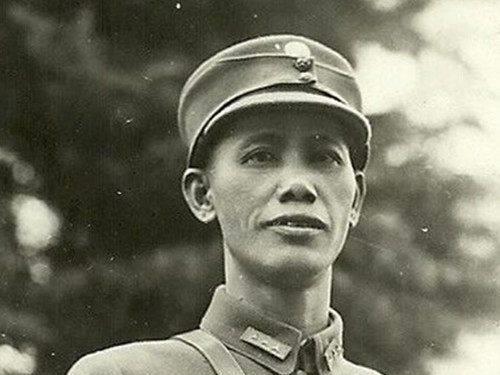He was awarded the Order of the Blue Sky and White Sun by the National Government in Nanjing, and was deeply supported and loved by the people of the whole country, overseas Chinese, and Compatriots in Hong Kong and Macao.

In May 1930, the Central Plains War broke out, and Cai Tingkai led his troops to assist Chiang Kai-shek in battle and made battle achievements. Chiang Kai-shek expanded the two divisions of Cai Tingkai and Jiang Guangnai into the 19th Route Army, appointed Jiang Guangnai as the commander-in-chief of the 19th Route Army, and Cai Tingkai as the commander of the 19th Route Army, and awarded 1 million yuan, and specially awarded Cai Tingkai as the number of tens of thousands of yuan, and the second-class Baoding Medal. In August 1930, the Nationalist government in Nanjing decided to establish the 19th Route Army and appointed Cai Tingkai as deputy commander-in-chief and commander-in-chief.
In November 1931, the 19th Route Army was ordered to serve as a guard along the Beijing-Shanghai line. In late January of the following year, the Japanese army attempted to invade and occupy Shanghai, requiring the 19th Route Army to retreat 15 kilometers. The Kuomintang authorities intended to agree to the Japanese demand and send Minister of Military Affairs He Yingqin lihu to convey it to Cai Tingkai. Cai immediately refused. He repeatedly affirmed that Shanghai is Chinese territory and that the Nineteenth Route Army is a Chinese company with the right to defend Shanghai. If the Japanese army dares to attack, our army is determined to face the blow.
At that time, the Nineteenth Route Army and the Fifth Army that arrived later had only more than 40,000 men, mainly light weapons. Cai Tingkai led the 19th Route Army in a bloody battle of 33 days with 60,000 or 70,000 Japanese invading troops equipped with aircraft, warships, and tanks, forcing the Japanese army to change commanders for four times, killing and wounding more than 10,000 people, and unable to capture Shanghai. Since then, Cai Tingkai has won the support and love of the people of the whole country, overseas Chinese, Hong Kong and Macao compatriots, and has been praised as "a generation of famous generals" and "anti-Japanese national heroes.". After the war, he was awarded the Order of the Blue Sky and White Sun by the National Government in Nanjing.
On May 5, 1932, the Nationalist Government in Nanjing signed the Songhu Armistice Agreement with Japan, transferring the Nineteenth Route Army to Fujian to "encircle and suppress" the Workers' and Peasants' Red Army. In August, Cai was promoted to commander-in-chief of the 19th Route Army. At the end of December, he was appointed director of the Fujian Appeasement Office. In the battle to "encircle and suppress" the Red Army, Cai Bu suffered repeated defeats. Cai Tingkai and Jiang Guangnai took the initiative to contact the Communist Party of China many times for the sake of the future of the Nineteenth Road, and finally reached an armistice agreement with the Red Army.
On November 20, 1933, Cai Tingkai, Li Jishen, Chen Mingshu, Jiang Guangnai and others established the People's Revolutionary Government of the Republic of China in Fujian. Cai served as a member of the Central Committee, a member of the Military Commission, the commander-in-chief of the First Front of the People's Revolutionary Army, and the commander-in-chief of the Nineteenth Route Army. In just two months, the Fujian People's Government failed, and Cai Tingkai traveled abroad. Everywhere he went, he actively propagated the war to resist Japan and save the country, accused Japan of its crime of aggression against China, and attacked the Nanjing government's policy of non-resistance, which was well received by overseas Chinese and foreign friends.
"The humble army has the duty to defend the land, and it must not give up on the grass; although it sacrifices to save the country and protect the family, it will never shrink back even though it sacrifices to the point of a single bullet." General Cai Tingkai's famous words of the War of Resistance